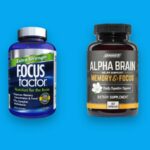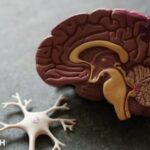
Table of Contents
Introduction
The contemporary era has witnessed an upsurge in the use of Nootropics, commonly referred to as “smart drugs,” owing to their promising cognitive-enhancing potential. These compounds are prevalently utilized to optimize focus, memory, and overall productivity. However, the vast array of Nootropic variants present on the market pose a daunting challenge in determining the efficacious and safe ones.
Consequently, the query of whether Nootropics exert an impact on long-term memory emerges as a perennial concern. In this write-up, we shall delve into the impacts of Nootropics on memory and expound on their effectiveness.
Understanding Memory
Before we delve into the impact of Nootropics on memory, it is paramount to comprehend the fundamental aspects of memory. Memory refers to the brain’s ability to receive, store, and retrieve information. There are three fundamental types of memory, including sensory, short-term, and long-term memory.
Sensory memory holds sensory information for a brief duration of time, typically a few seconds. In contrast, short-term memory, also known as working memory, is responsible for holding information for a brief period, usually a few minutes. Long-term memory is responsible for storing information for a prolonged duration, ranging from days, months to even years.
Memory retention is a complex process that involves the intricate workings of the brain. The hippocampus is the primary region of the brain responsible for memory formation and consolidation. Upon learning new information, the hippocampus is activated, and the information is stored in the brain. The process of memory formation entails three crucial steps, including encoding, storage, and retrieval.
What are Nootropics?
Nootropics refer to a category of drugs or supplements that are specifically formulated to augment cognitive function. They are often dubbed as “smart drugs” or “cognitive enhancers.” These substances are commonly employed to optimize memory, focus, creativity, and motivation.
The underlying mechanism of action of Nootropics involves enhancing cerebral blood flow, facilitating the release of neurotransmitters, and boosting brain plasticity. Nootropics are available in a wide range of forms, including prescription medications, over-the-counter supplements, and herbal remedies.
How Nootropics Affect Memory
The question remains: do Nootropics impact long-term memory? The answer is not a straightforward one. While some Nootropics have been demonstrated to enhance long-term memory, others have been found to have little to no effect.
For instance, a study found that Piracetam, a popular Nootropic, can improve long-term memory. In this study, participants who ingested Piracetam exhibited a substantial improvement in their ability to retrieve information compared to those who were administered a placebo.
Similarly, Noopept, another prevalent Nootropic, has been found to enhance long-term memory. A study conducted on rats discovered that Noopept augmented the levels of Brain-Derived Neurotrophic Factor (BDNF), a protein that stimulates the growth of new neurons and is crucial for long-term memory formation.
However, it is vital to note that not all Nootropics have been shown to enhance long-term memory. Some Nootropics, such as caffeine, have been found to have little to no effect on long-term memory.
It is also worth noting that while certain Nootropics may enhance long-term memory, their effects are not permanent. Like any drug or supplement, the effects of Nootropics may dissipate over time.
Popular Nootropics for Memory
When it comes to memory enhancement, some Nootropics are more effective than others. Among the most popular Nootropics for this purpose are Piracetam, Noopept, Aniracetam, and Modafinil.
Piracetam is widely used and has been shown to improve memory, focus, and mental clarity. It is believed to work by increasing blood flow to the brain and enhancing neurotransmitter production.
Noopept is a synthetic Nootropic that is similar to Piracetam. It has been found to enhance memory and learning ability by increasing the production of BDNF and other neurotransmitters.
Aniracetam is another Nootropic that has been found to improve memory and concentration. It is believed to work by increasing blood flow to the brain and enhancing neurotransmitter production.
Modafinil is a prescription Nootropic that is primarily used to treat sleep disorders like narcolepsy. However, it has also been found to improve memory and cognitive function in healthy individuals.
Risks and Side Effects of Nootropics
It is crucial to note that Nootropics should only be taken after consulting with a healthcare professional, as they can pose risks and side effects. Some of the common side effects of Nootropics are headaches, nausea, and insomnia. In rare cases, more severe side effects such as anxiety, depression, and hallucinations may occur.
Moreover, some Nootropics can lead to dependence and addiction, particularly those that affect the dopamine system. It is vital to take Nootropics only as directed and not exceed the recommended dosage. Responsible use of Nootropics is essential to avoid any adverse effects on physical and mental health.
Conclusion
To summarize, the impact of Nootropics on memory varies depending on the type of Nootropic being used. Piracetam and Noopept are two examples of Nootropics that have been found to enhance long-term memory. However, it is essential to use Nootropics responsibly and under the guidance of a healthcare professional due to potential risks and side effects. Overall, while Nootropics may offer benefits in enhancing cognitive function, it is important to weigh the potential risks against the benefits before deciding to use them.
FAQs
Can Nootropics completely cure memory loss?
No, Nootropics cannot completely cure memory loss. While they may enhance cognitive function and improve memory, they cannot reverse or cure memory loss caused by conditions such as Alzheimer’s disease.
Are Nootropics safe to use?
While Nootropics are generally considered safe, they are not without risks and side effects. It is important to use Nootropics responsibly and under the guidance of a healthcare professional.
Do I need a prescription to use Nootropics?
Some Nootropics require a prescription, while others are available over the counter. It is important to research the specific Nootropic and consult with a healthcare professional before use.
Can Nootropics be addictive?
Some Nootropics have the potential to be addictive, particularly those that affect the dopamine system. It is important to use Nootropics responsibly and only as directed to avoid the risk of dependence and addiction.
How long does it take for Nootropics to work?
The time it takes for Nootropics to work varies depending on the type of Nootropic and the individual. Some Nootropics may take several weeks to show results, while others may work more quickly.
Conclusion
In conclusion, Nootropics have the potential to enhance long-term memory, but their effectiveness varies depending on the type of Nootropic. Piracetam and Noopept have been found to be effective in improving long-term memory, while other Nootropics may have little to no effect. It is important to use Nootropics responsibly and under the guidance of a healthcare professional to avoid potential risks and side effects.








